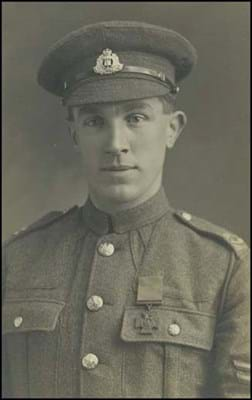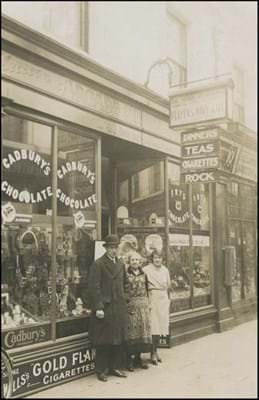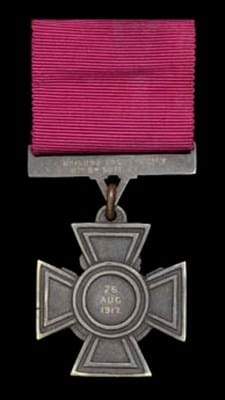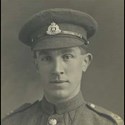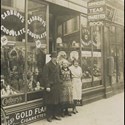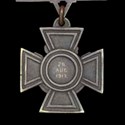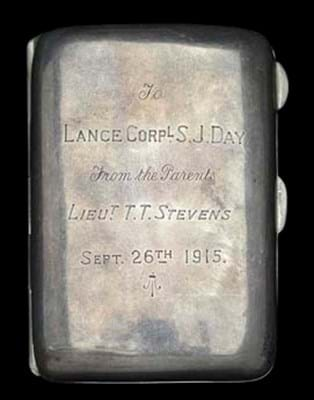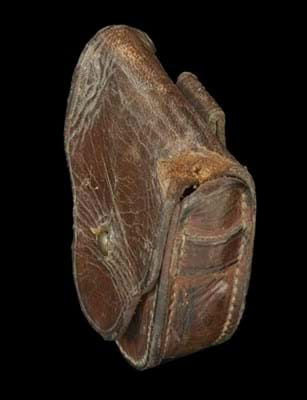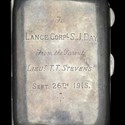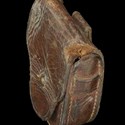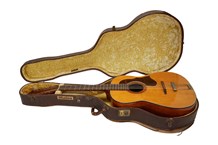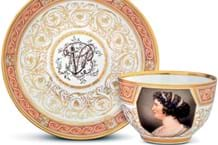Day planned to lead a quiet life by opening a tea rooms in Portsmouth – only for his business and home to be destroyed by the Luftwaffe in the Second World War. Given his numerous scrapes in 1914-18, it was probably inevitable he survived, however.
The Norwich-born soldier’s VC and other awards are now coming up for sale in the London auction held by Dix Noonan Webb on February 28, estimated at £120,000-140,000.
It is the latest VC to be offered in a recent run of these honours at auction, including several at DNW.
Miraculous survival
Day, who won his VC in 1917, was one of only two men of the Suffolk Regiment ever to be awarded Britain’s highest gallantry decoration.
“Sidney Day’s survival in the First World War was nothing short of miraculous,” said Mark Quayle, medals specialist at DNW. “He suffered five wounds, was saved from serious injury on two occasions when equipment and personal possessions deflected bullets and was twice forced to crawl back to British lines. He was eventually taken prisoner.
“He was desperately unlucky not to have been rewarded with at least one other gallantry decoration during the First World War. He performed the most astonishing feats of bravery over a two-year period before he was eventually given a long-overdue VC. Other men of his calibre emerged from the conflict with a row of gallantry awards.”
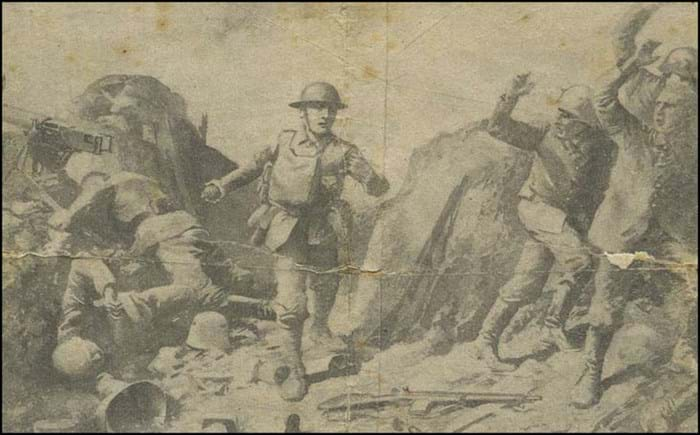
An artist’s illustration of Corporal Sidney Day winning the Victoria Cross in August 1917.
On August 26, 1917 Day won his VC for heroics during the capture of a complex German trench system at Hargicourt. When the attack was threatened by an enemy machine gun, Day killed two of the crew and took the rest prisoner. He then went on alone to ‘bomb his way’ through the German trench system to link up with other British attacking parties.
At one point a German stick grenade landed at his feet. Day seized it and threw it out of the trench – it exploded almost as soon as it left his hands. He pressed on, cleared the rest of the trench and, having consolidated the position, remained at his post under heavy shellfire until he was relieved 66 hours later.
Day’s VC, the three campaign medals that he was awarded for the First World War and two medals for the coronations of George VI and Elizabeth II are being sold by order of his family with an emotive archive of material.
This includes a cigarette case given to him by the parents of a young officer whose life he unsuccessfully tried to save, a leather compass case which stopped a bullet that could have killed him and a Government document compensating him for the destruction of his home and business by German bombers.
Not time for tea
In his post-war quest for a quiet life, Day moved to Portsmouth where he and his wife opened the Sidney Day VC Tea Rooms in The Arcade, off Edinburgh Road. His home and business were destroyed by a German air raid on January 10, 1941. Nearly 600 people were killed and injured in Portsmouth during that raid but Day walked away without a scratch. He subsequently found work as a messenger in the naval dockyards in Portsmouth.
More DNW VCs
In December DNW offered the VC group awarded to Sir Henry Tombs (always known as Harry). He was a man described by the saleroom as “one of the great heartthrobs of the Victorian age”.
Sir Harry – at that time a major – won his VC for saving the life of Second Lieutenant James Hills during the Indian Mutiny in 1857.
Estimated at £200,000-250,000, the VC group sold for £240,000 (£288,000 with premium) to an agent in the room bidding on behalf of a UK private collector. The buyer is understood not to be Lord Ashcroft, a regular buyer of VCs.
Lord Ashcroft was successful at the DNW sale on March 1 last year, however. He bought the VC awarded to Yorkshire hero George Sanders for bravery at the first day of the Somme in 1916 and other honours Sanders had earned, including a Military Cross.
The medals had been estimated at £180,000-220,000 and also sold for £240,000 hammer.
The former Conservative Party treasurer has built the world’s largest collection of VCs, which are publicly displayed in a special gallery at the Imperial War Museum in London.
Sale in dollars
A VC group won by Lieutenant Colonel David Currie sold at DNW on September 27 for Can$550,000 (£331,325). Although the sale was held in London, it was conducted in Canadian dollars, and the medals remain in Canada where they have been since the vendor bought them from Currie’s widow Isabel in 1989.
Because the successful bidder is based in the UK, an application has been made to the Canadian Government for a cultural property export permit.
The VC won by Currie is unique to the Royal Canadian Armoured Corps, the only one awarded to a Canadian soldier for the 1944 Normandy campaign and the only Second World War VC to a member of a Canadian unit not already on public display in Canada.


